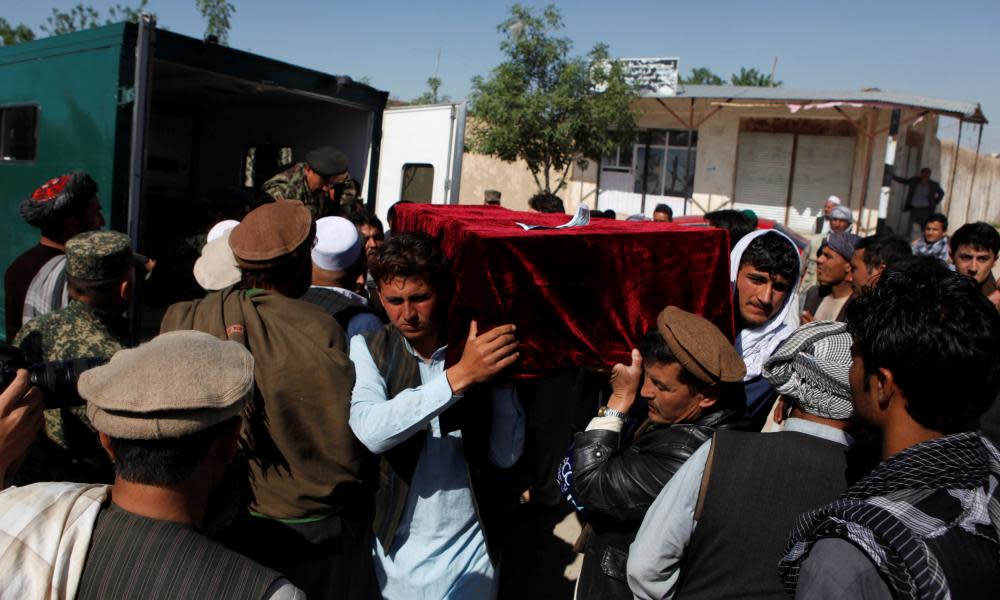Afghanistan reels from Taliban's deadliest attack on army since 2001

Afghans are still reeling from the Taliban’s deadliest attack on the security forces since 2001, with the country’s leadership accused of fumbling the response to the atrocity.
As many as a dozen militants stormed the largest army base in northern Afghanistan on Friday, killing at least 140 soldiers, many of them unarmed.
The president, Ashraf Ghani, called for a national day of mourning and travelled to Mazar-i-Sharif to visit the base, but many among a grieving population called for answers, reassurances - and government heads to roll.
In an apparent attempt to save face, the central administration has continuously downplayed the death toll, which has been confirmed by anonymous officials in many corners of government.
Forty-eight hours after the attack, the president’s office and the defence ministryput the number of dead and injured at “more than 100”. Sediq Sediqqi, the director of the government’s media and information centre, said officials were still verifying the identity of the victims.
Victims’ relatives, however, were losing patience.
“The government is disrespecting the martyrs by not telling the truth,” said Mohammad Shafi, whose cousin, Mohammad Mahmoud, 22, was killed four months into his army service. Mahmoud’s older brother, Aminullah, was wounded.
So many people were killed in the attack that the base ran out of coffins and ambulances to transport them.
“We went to the base at 5am,” said Shafi. “Six hours later, we got his body, but were told they didn’t have ambulances. So we took him in a taxi. We expected respect. My cousin gave his life in martyrdom. But only VIP people who know officials got ambulances.”
Friday’s attack was the second major intelligence failure in two months, after alleged Islamic State gunmen stormed an army hospital in Kabul in March, killing dozens of injured soldiers and nurses.
The location and nature of the two attacks are a sign of how pervasive the war has become and how brutal. Urban areas such as Mazar-i-Sharif and Kabul had previously been considered relatively safe.
Morale could also suffer. The security forces already struggle with a high attrition rate and recruitment problems. More than 6,700 soldiers and police were killed last year, a record high.
Some public anxiety and anger has been directed at the former president Hamid Karzai who often called the Taliban his disgruntled “brothers”. Karzai was quick to denounce the US Moab strike on 13 April as an inhuman act, and Ghani as a traitor for supporting it, but he did not condemn the Taliban by name after Friday’s attack.
Only after public pressure mounted did he declare that he could no longer call the Taliban brothers. On social media, people called for Karzai’s name to be removed from the national airport.

 Yahoo News
Yahoo News 